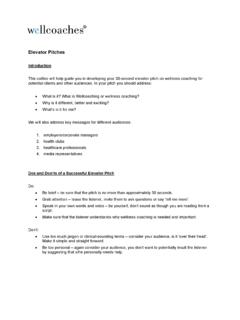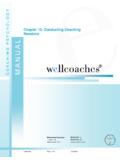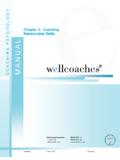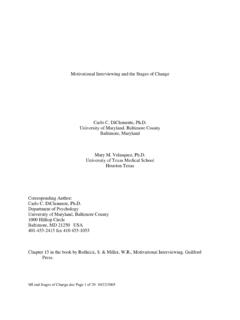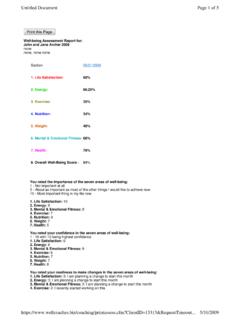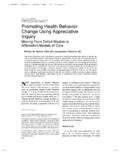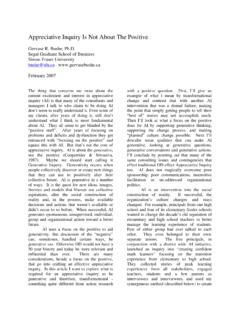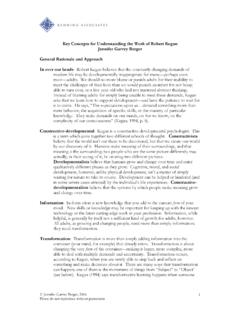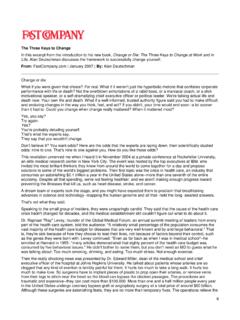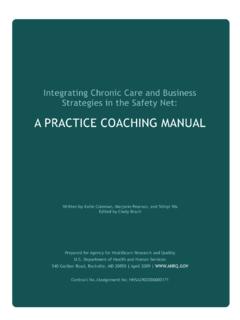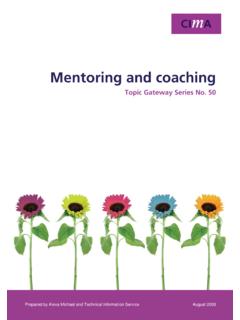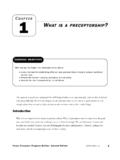Transcription of Chapter 2: Coaching Relationship Skills - Wellcoaches
1 Confidential Page 1 of 53 04/03/2009 Chapter 2: Coaching Relationship Skills Confidential Page 2 of 53 04/03/2009 Chapter 2 Coaching Relationship Skills My certainty is greater than your doubt. Dave Buck, President of CoachVille Chapter Contributors: Margaret Moore, Bob Tschannen-Moran, Gloria Silverio, Kate Larsen, and Juli Compton After reading this Chapter , you will be able to: Define the heart of Coaching Demonstrate the Skills for establishing trust and building rapport within a Coaching Relationship Name and discuss three core Coaching Skills Demonstrate the Skills for mindful listening, open-ended inquiry, and perceptive reflections Identify additional tools for developing the Coaching Relationship Discuss the Do s and Don ts of Coaching Describe the qualities of a masterful coach.
2 Describe the International Coaching Federation Core Coaching Competencies Relationship : The Heart of Coaching Consider the following definitions of Coaching from leaders in the field: Confidential Page 3 of 53 04/03/2009 Professional Coaching is an ongoing professional Relationship that helps people produce extraordinary results in their lives, careers, businesses or organizations. Through the process of Coaching , clients deepen their learning, improve their performance, and enhance their quality of life.
3 The International Coach Federation, The ICF Code of Ethics, , 2005, Coaching is the art of creating an environment, through conversation and a way of being, that facilitates the process by which a person can move toward desired goals in a fulfilling manner. Tim Gallwey, The Inner Game of Work, 2000, p. 177 Coaching is the process of bringing out the greatness of people. It begins with a desire on the part of the client to accomplish, have, or experience something. The coach inspires the client to accomplish the desired result through personalized teaching, expanding awareness, and designing environments.
4 Dave Buck, , The Language of Coaching , 2004 Coaching is a process that fosters self-awareness and that results in the motivation to change, as well as the guidance needed if change is to take place in ways that meet (individual and) organizational performance needs. David Dotlich & Peter Cairo, Action Coaching , 1999, p. 31 Confidential Page 4 of 53 04/03/2009 Coaching is a mutually voluntary interaction that occurs between people in which one person, the coach, has neither responsibility, accountability, or authority over the outcomes of the person being coached towards a result of mutually desirable performance, generative change and development of the whole person.
5 Mike Jay, Coach2 The Bottom Line, 1999, p. A-i Coaching is essentially a conversation a dialog between a coach and a coachee within a productive, results-oriented context. Coaching involves helping individuals access what they know. They may never have asked themselves the questions, but they have the answers. A coach assists, supports, and encourages individuals to find these answers. Coaching is about learning yet a coach is not a teacher and does not necessarily know how to do things better than the coachee.
6 A coach can observe patterns, set the stage for new actions, and then work with the individual to put these new, more successful actions into place. Coaching involves learning. Through various Coaching techniques such as listening, reflecting, asking questions, and providing information, coachees become self-correcting (they learn how to correct their behavior themselves) and self-generating (they generate their own questions and answers). Coaching is more about asking the right questions than providing answers a coach engages in a collaborative alliance with the individual to establish and clarify purpose and goals and to develop a plan of action to achieve these goals.
7 Confidential Page 5 of 53 04/03/2009 Perry Zeus and Suzanne Skiffington, The Complete Guide to Coaching at Work, 2000, p. 3 Coaching is a Relationship that intends to create transformation and learning in individuals, groups, and communities .. It starts with engaging people in a conversation where they clarify their vision, goals, and ideas as well as their agreement to be challenged and supported .. It assumes that people have the inherent creativity, intelligence, and tacit knowledge they need to succeed but may need help in gaining access to it.
8 It revolves around committed listening and speaking . It involves setting stretch goals, eliciting internal commitment and motivation and self-directed learning, creating a successful theory of action, practicing the fundamentals, observing breakdowns, providing meaningful feedback, as well as teaching new Skills and capabilities. Robert Hargrove, Masterful Coaching , 1995, pp. 84, 53, 57, and 37 Despite nuances of perspective and emphasis, these definitions of Coaching share a common denominator: Relationship .
9 Coaching is a growth-fostering Relationship that enables clients to reach their goals and fulfill their visions. The core Coaching Skills described in this Chapter are consistent with ICF Core Coaching Competencies (see Appendix 2) and are taught widely by coach training schools. The relevant ICF competencies include Establishing Trust and Intimacy, Active Listening, and Confidential Page 6 of 53 04/03/2009 Powerful Questioning. These Skills are not new discoveries by coaches they are rather foundational relational Skills of counseling and clinical psychologists, and are core Skills of the Motivational Interviewing field described further in Chapter 5.
10 Establishing Trust and Rapport The Coaching Relationship requires the establishment of strong trust and rapport in order to generate a productive and fulfilling change process. When trust and rapport are absent, so is a growth-fostering environment. Megan Tschannen-Moran defines trust as the willingness to be vulnerable to another based on the confidence that the other is benevolent, honest, open, reliable, and competent (2004). Understanding the importance of these five qualities, masterful coaches pay constant attention to utilizing them in every conversation.
